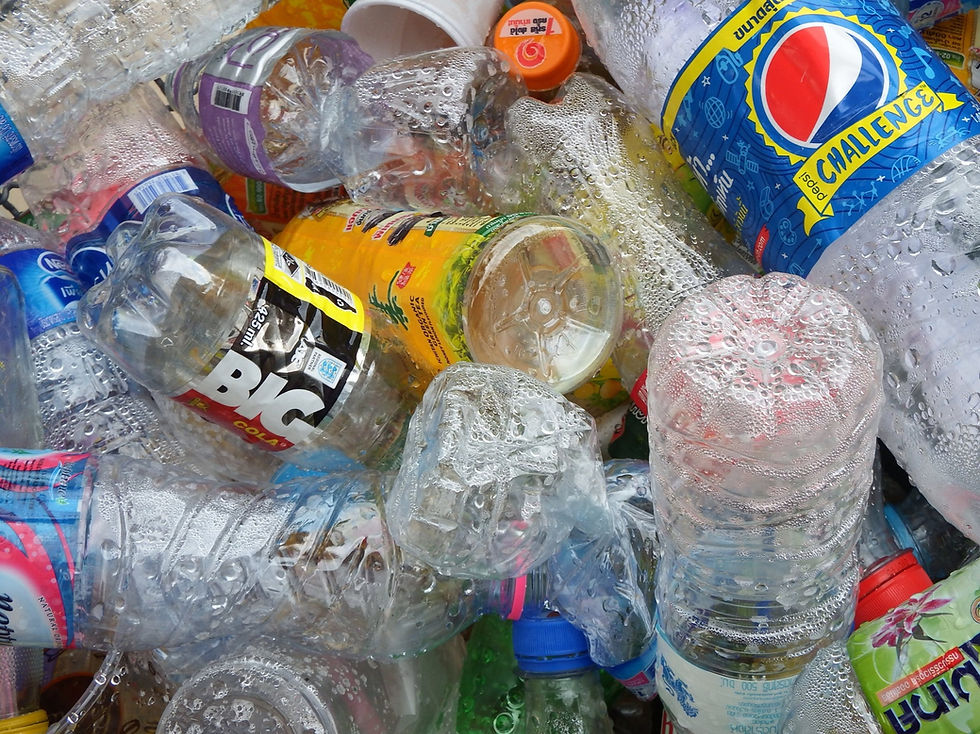Plastic waste is an engineering problem.
- cfneug
- May 10, 2021
- 2 min read
Updated: May 14, 2021
It turns out recycling hasn't been very effective at curbing plastic pollution. What went wrong?

Recycling programs have made a limited dent as less than 10% of all plastic produced this year is expected to be recycled. That troublesome statistic doesn't begin with wasteful consumers or inefficient recyclers though -- it starts at product design. Plastic products are almost always specified with additives mixed in with the plastic resin -- pigments, fire retardants, barrier layers that improve food safety, etc. The product without those additives might be dangerous or non-functional. Sometimes labels or attached parts are made of different plastic formulations as well (e.g. the bottle cap). Recyclers can sort reasonably well, but the mish-mash of sorted/shredded/melted plastic is rarely good enough to be reformed into the original product - a concept known as circular recycling. The materials properties of mechanically recycled plastic degrade too much from the accumulated impurities and uncontrolled mixture of additives to be circular. So even the 10% that will be recycled this year is mostly down-cycled once -- milk jugs turn into a plastic park bench and that park bench eventually goes to a landfill.
There are more circular solutions farther out on the horizon. Chemical recycling can break down plastic into constituent monomers with additives and impurities separated out. The technical challenges are high, however -- the energy and chemicals needed to break the bonds in common plastics are not trivial and can easily render the whole process ecologically unfavorable. But new plastic formulations that break down more easily, new catalysts, biological approaches and special enzymatic reactors are all under active investigation.
Even if a process can be made ecologically favorable, it then faces a second hurdle -- the virgin resin it competes against is relatively inexpensive. Policies that apportion the true environmental costs to virgin plastic can create the incentives needed to kickstart and scale advanced recycling. Ultimately this has to be the way -- even the least ecologically driven can agree that landfills eventually fill up and the oil eventually runs out. The sooner we figure out how to economically make new plastic things out of old plastic things, the less plastic will be in circulation overall.
In the short term before such circular chemical recovery technologies are widespread, recycling should really be considered a method of last resort. Reducing your plastic footprint by 20% (far exceeding current recycling efficiency at 10%) is a great goal. Bias your purchasing to products that use less plastic in their packaging. And look for ways to get extra utility out of plastic before it ends up in the bin. Little changes done by a large group can add up to an environmentally meaningful short term result.




Comments